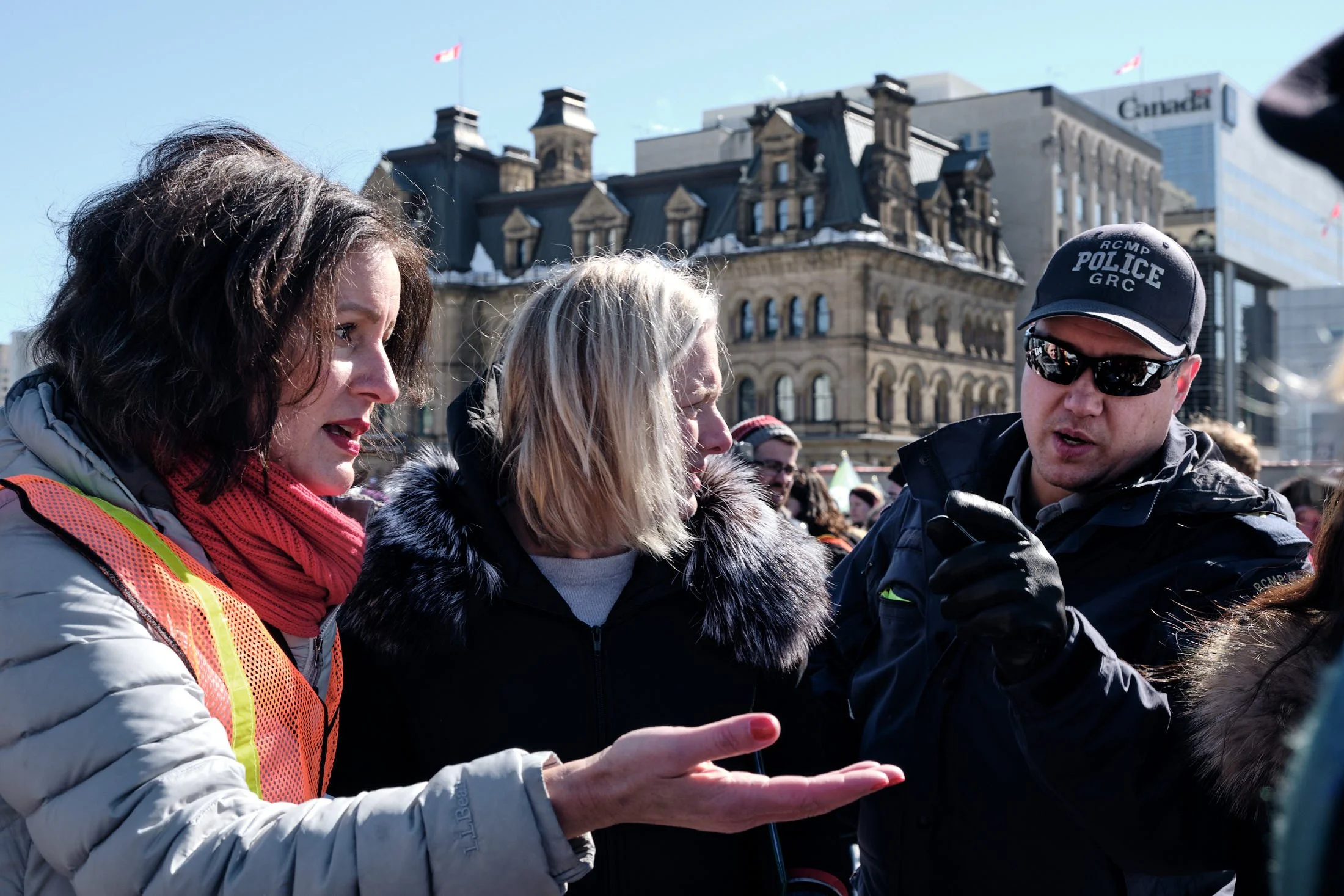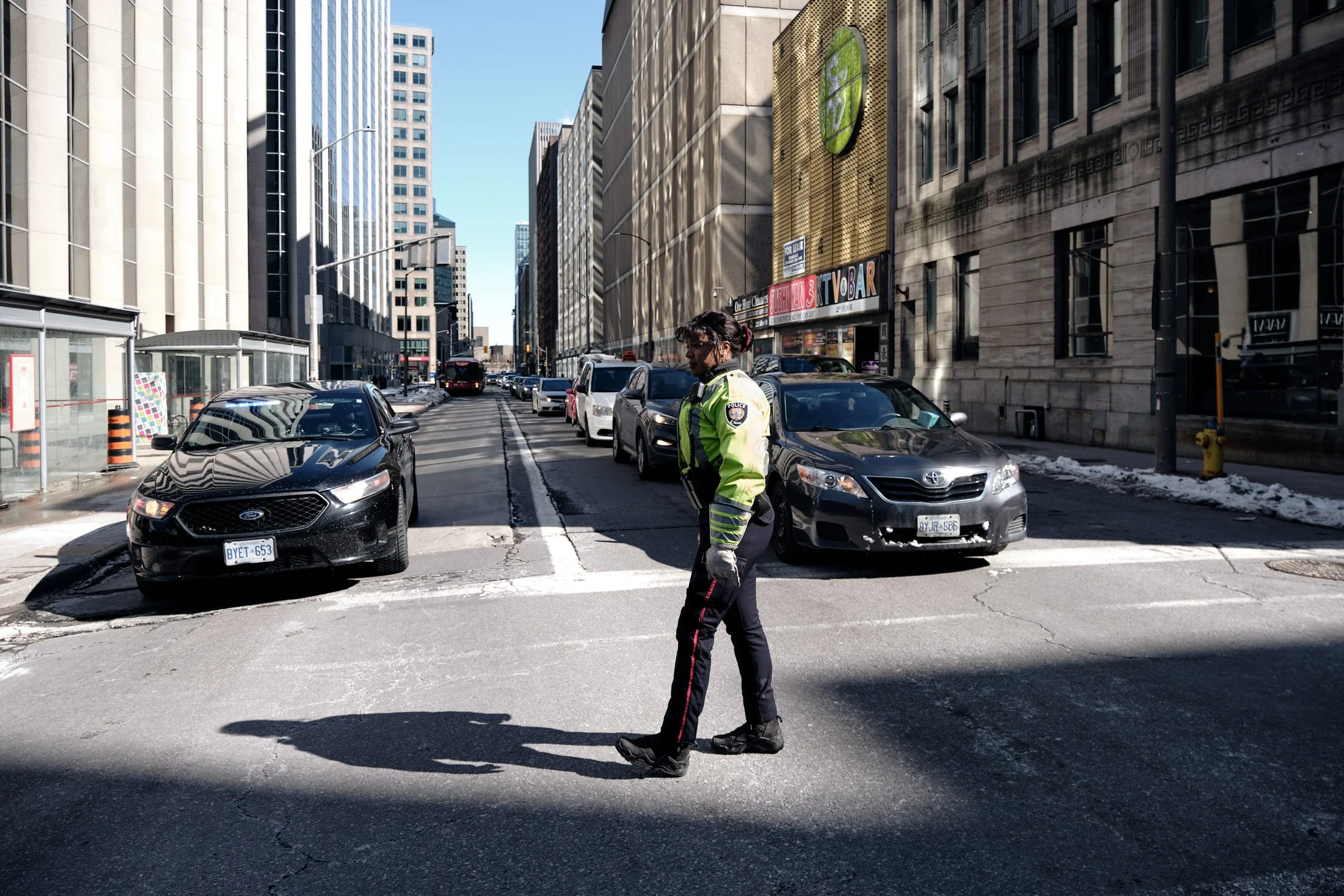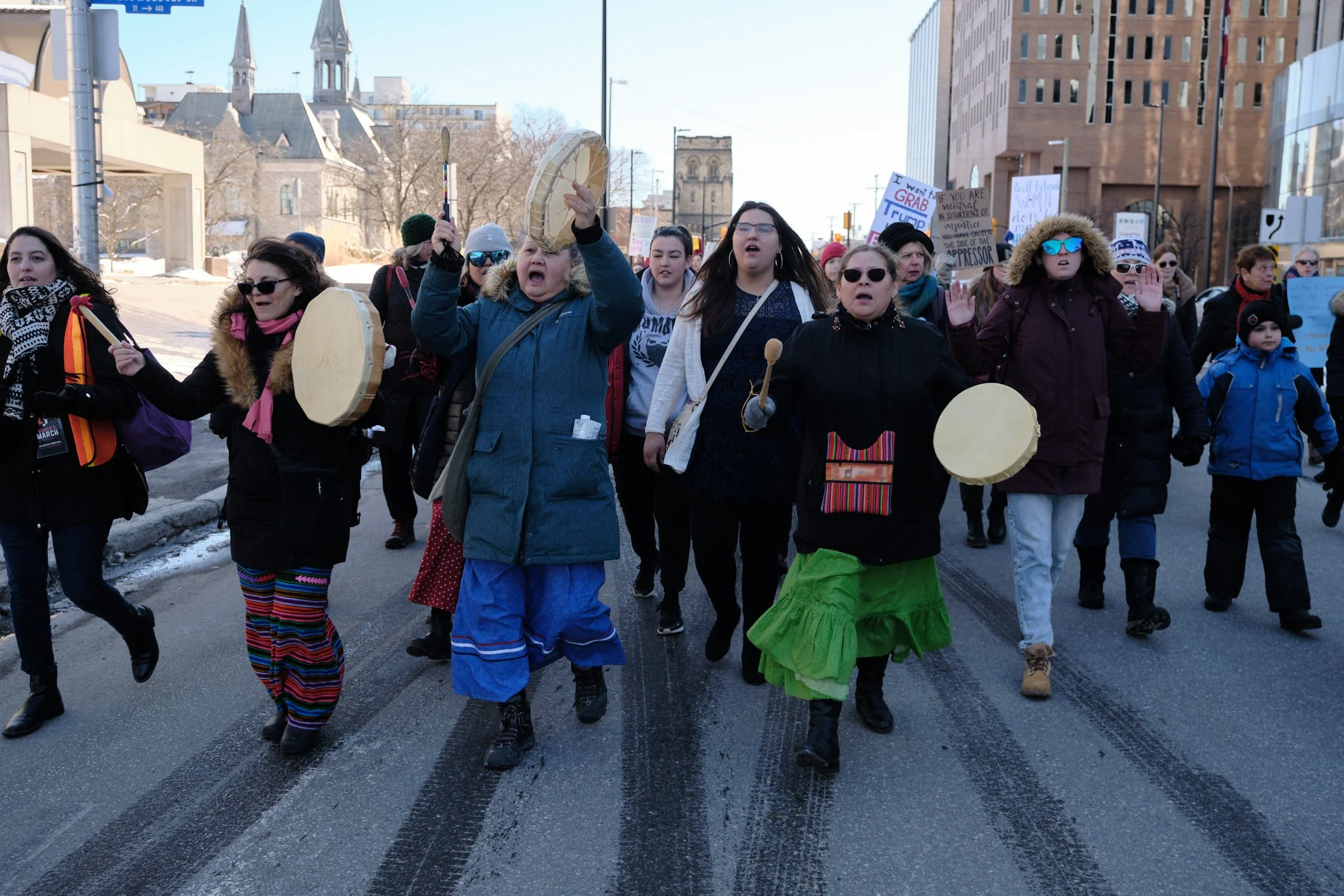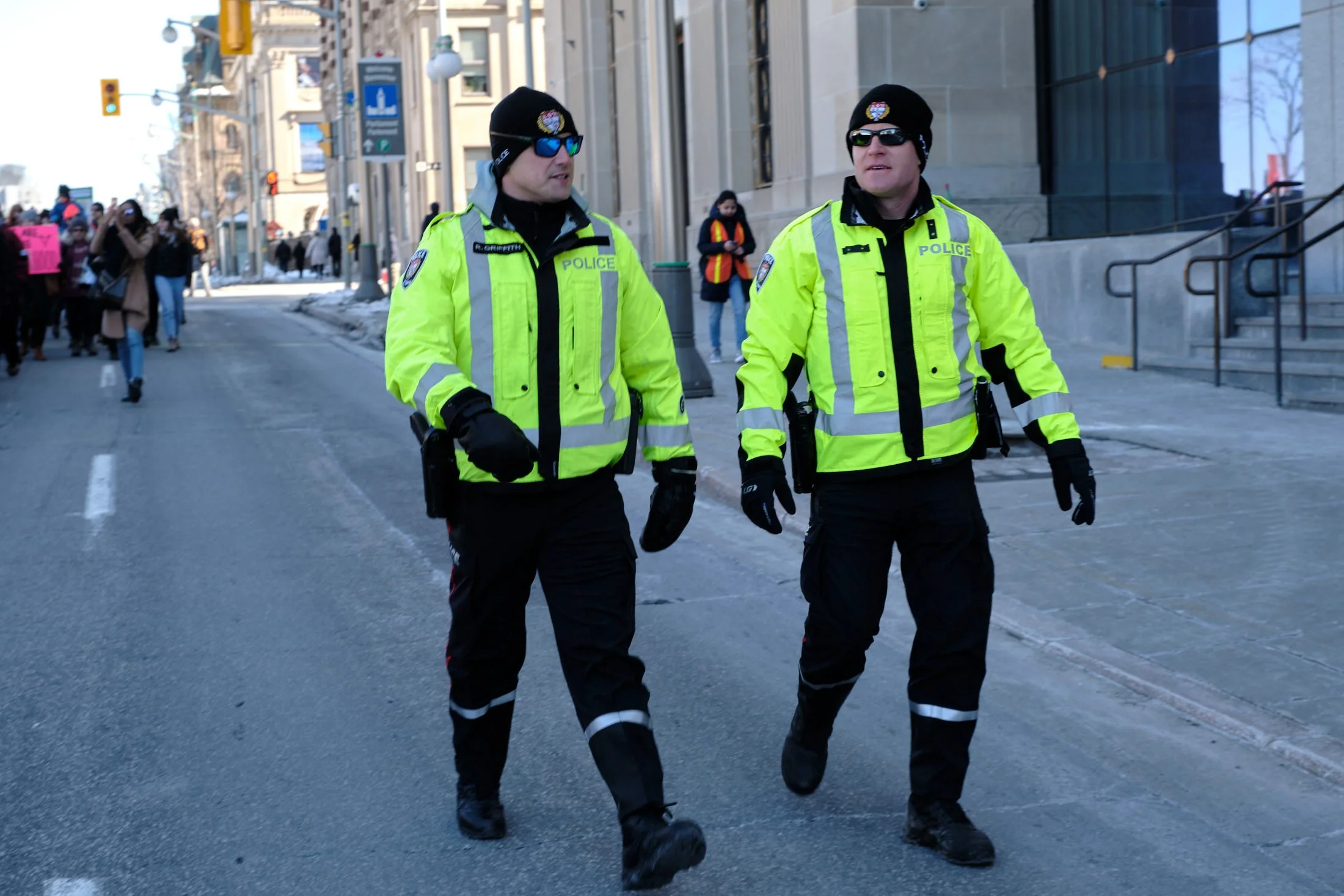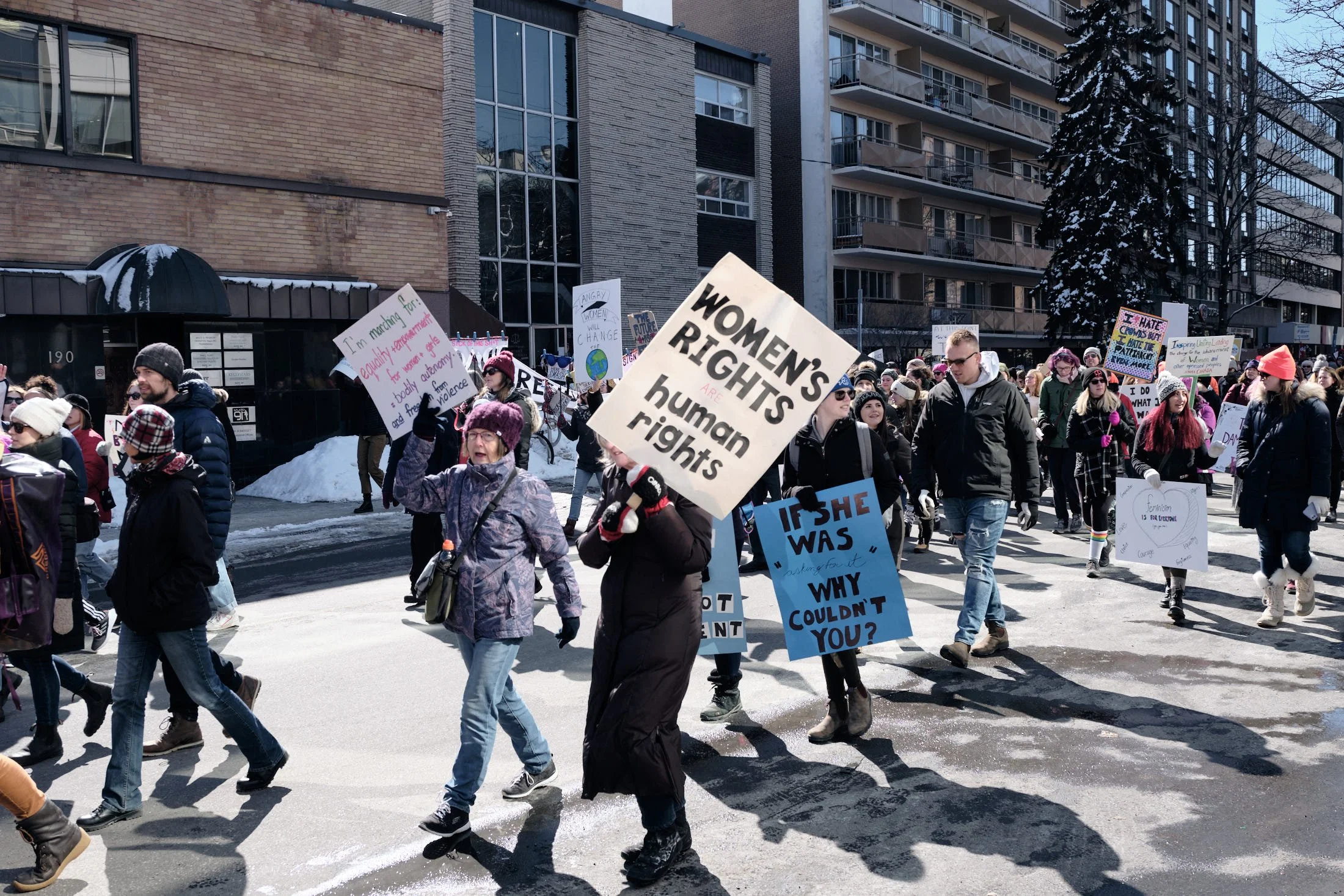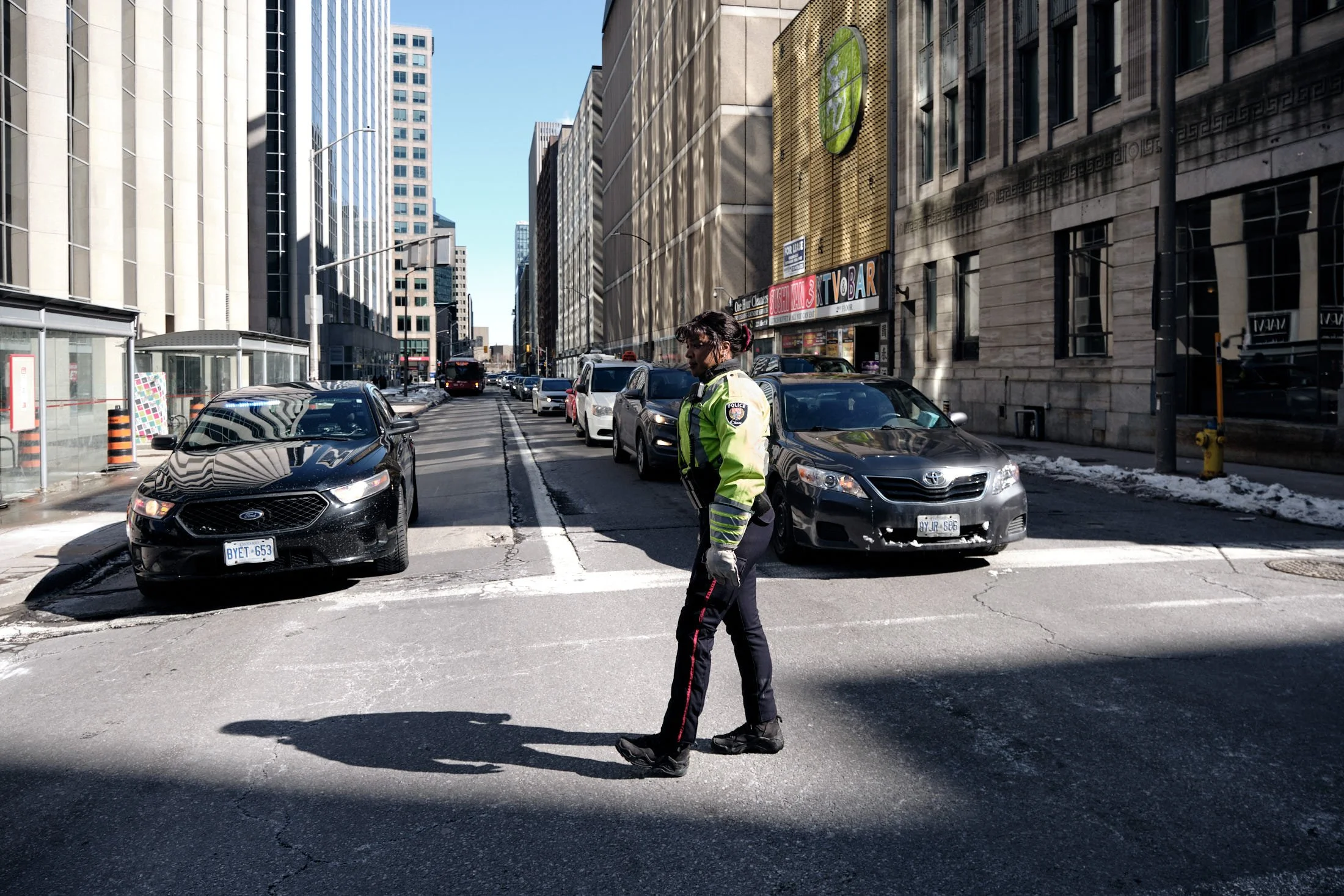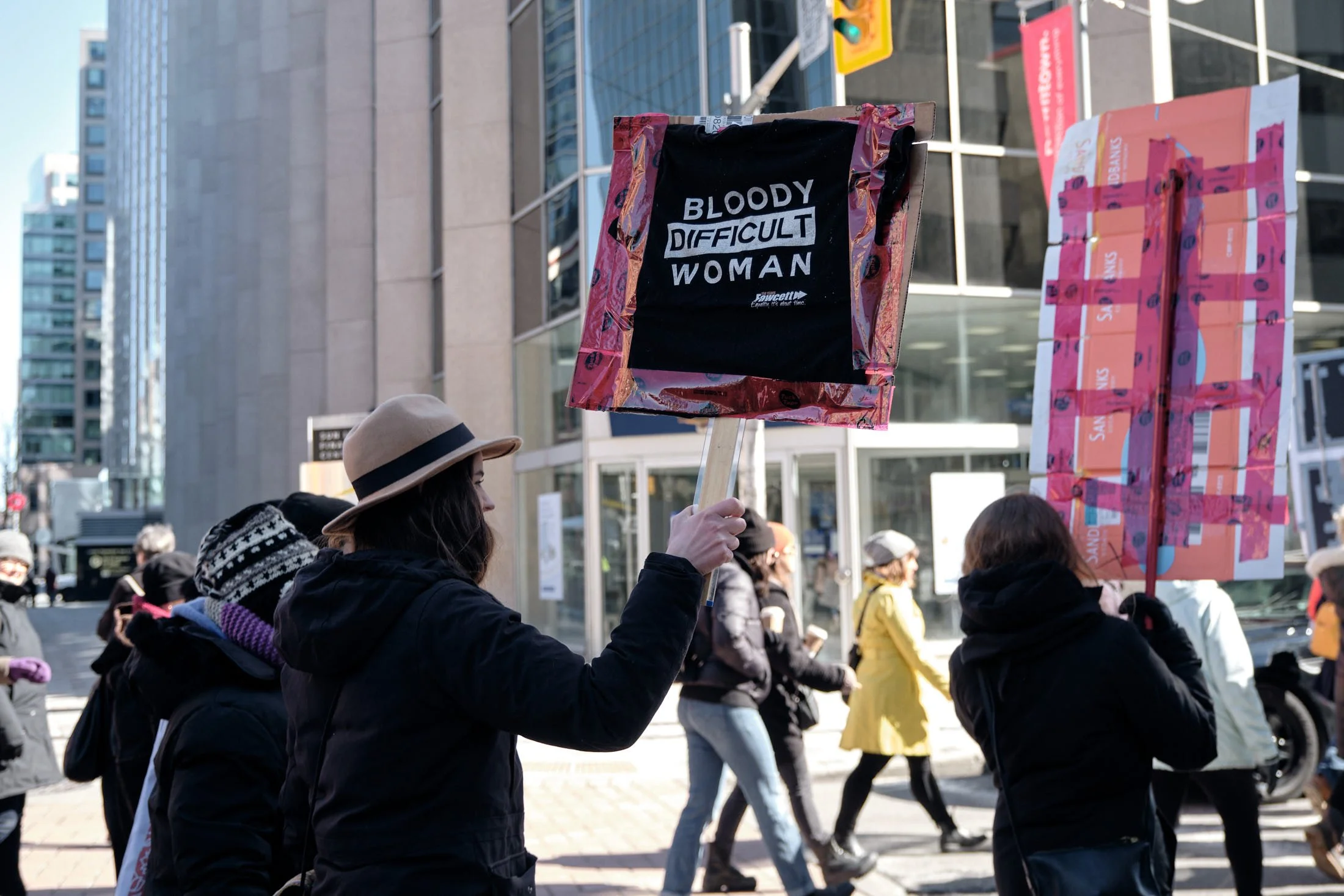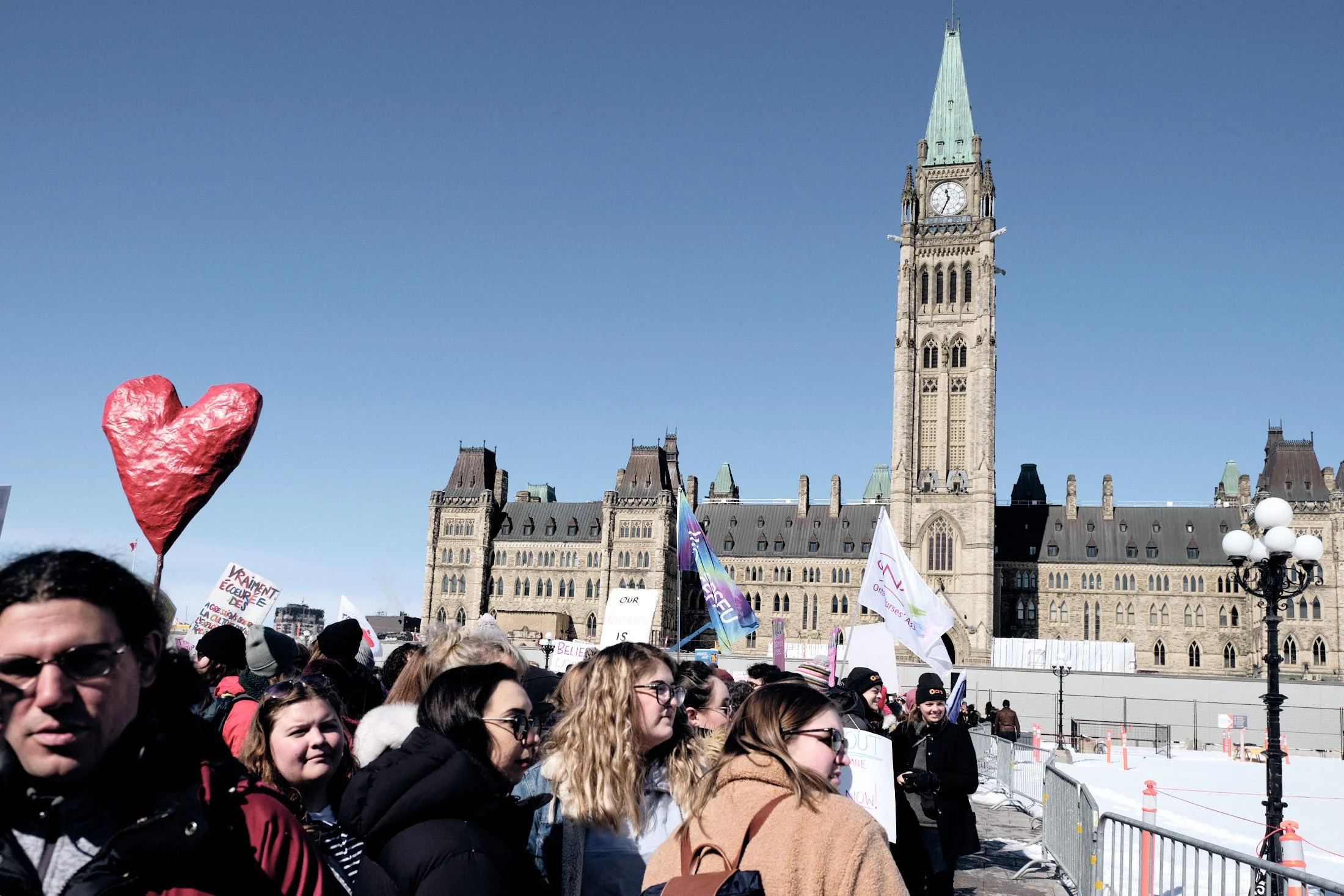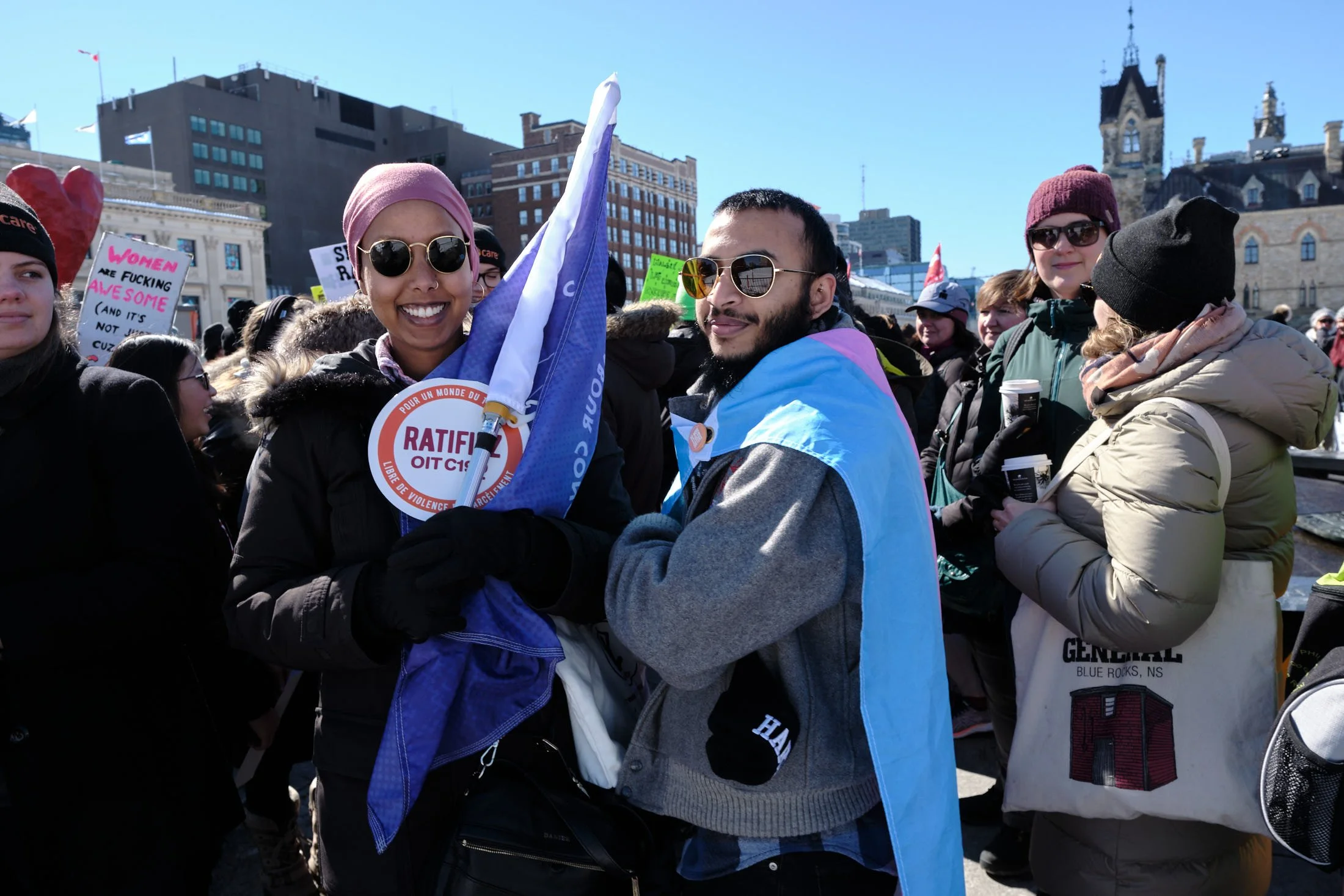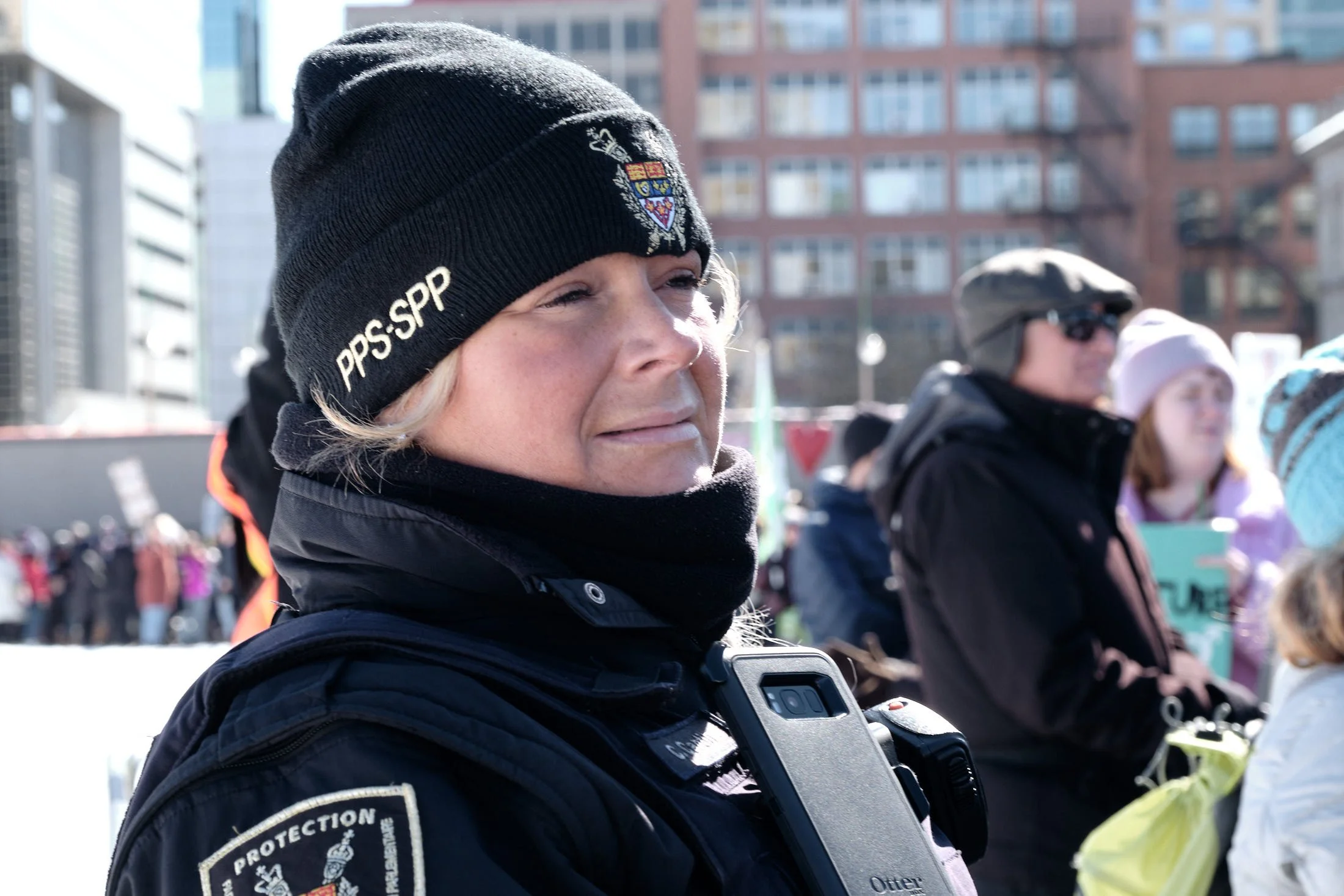
Why I March
It’s 2020 and women in Canada have had the privilege to vote since just over 100 years and it’s been 90 years since women were declared “persons” under the law. Today women can be police officers, astronauts or politicians. Surely it would seem we’ve come a long way baby.
And yet on a relatively cold March morning approximately 1200 feminists, both women and men gathered on Parliament Hill to march for women’s human rights! What is this about?
My first Women’s March was in 2016 in Yellowknife. It was a world-wide response to the unfathomable election of Donald Trump - the most overtly misogynist sorry excuse of a human being I could imagine. His election to President of the United States spelled trouble for women, the men who love them and the planet. We were incensed. The response made its way north of the 60th parallel.
The Ottawa Women’s March Co-Chair Raylene Lang Dion says “It’s a bit like the Greek legend of Sisyphus having to repeatedly roll a boulder up a hill only to have it roll back down again once he gets it to the top.” It’s an apt metaphor for our persistent struggle against the absurdity that women are still not equal.
I am in a fairly privileged position at this point of time in my life. I have a nice home with a good husband, drive a nice car and have the time and resources to attend photographic art school. However, it hasn’t always been like this for me. Nearly forty years ago at the age of 21, I was a married mom of two baby boys and I had to leave my husband. My eldest son had just turned two and the baby was three months old. I was lucky though. I was able to arrange subsidized housing and other social supports that would help me with my resume, buy me a suit, get a job in a typing pool and arrange daycare. They would have helped me go back to school but foolishly I chose to work my way as a secretary. I would then raise them on my own for the next 20 years without child support from their father. Needless to say it was a difficult time.
Many women today are not so fortunate. Gender-based violence against women and girls is on the rise. Thousands of women are turned away from shelters when they are literally running for their lives with no place to go. CBC is doing a new series "Stopping Domestic Violence," which is looking at the crisis of intimate partner violence in Canada and what can be done to end it. In November of 2019 1,900 requests for help were turned away.
It seems not much has changed in 38 years since MP Margaret Mitchell rose to ask the minister responsible for the status of women what action the government will take to protect battered women. She began by stating that "one in 10 Canadian husbands beat their wives regularly," but she could get no further because of an outbreak of laughter and heckling that drowned her out. "Madam Speaker, this is no laughing matter”. The minister responsible Judy Erola, replied that she did not find the men's derision amusing "and neither do the women of Canada." Out of 100,000 cases of violence only two convictions had been obtained.
One women every six days in this country is killed by her intimate partner. Indigenous women are assaulted almost three times more than non-indigenous women. Literally thousands of indigenous women have been murdered or reported missing over the past three decades.
Young women and girls are being sex-trafficked in cities across Canada, enduring substantial physical and emotional trauma.
We are seeing daily reminders that our sexual health and reproductive rights are under attack. Just this week we saw funding disappear for the province’s 42 rape crisis centres, leaving survivors of rape without support while our Premier prefers Buck-a-Beer type policies and the redesign of our License Plates.
Despite all the advances women are still not proportionally represented in various levels of government. The 2019 federal election saw 98 women elected, just 29 per cent of the 338 seats in the House of Commons. Caroline Cochrane of the Northwest Territories is the only woman of Canada’s 13 first ministers. Municipally, just seven of 24 members of Ottawa Council are women.
And when women do take on leadership roles the backlash against them is impalpable. One only has to check their Twitter feed to see the rampant sexism and misogyny that exists in the world today. When Catherine McKenna was the Environment Minister a body guard was assigned to her due to threats she received. Another shameful example is an Alberta Oil company’s sticker depicting 17-year-old climate activist Greta Thunberg being held by her braids and penetrated from behind. And we won’t soon forget the more extreme example of what happened to Malala for promoting school and education for girls. This is no time to be smug about our accomplishments. History has shown that it is possible for a society to regress in its attitudes and freedoms.
I believe more women need to be elected because we live in a democracy and the government should be reflective of the population it serves and secondly because women tend to make better decisions with regards to quality of life issues and reflect more the priorities of families, women and racial minorities.
This March signifies that boots are on the ground and that women’s equality in not open for debate.
“All of our humanity is dependent upon recognizing the humanity in others.”
- Desmond Tutu


